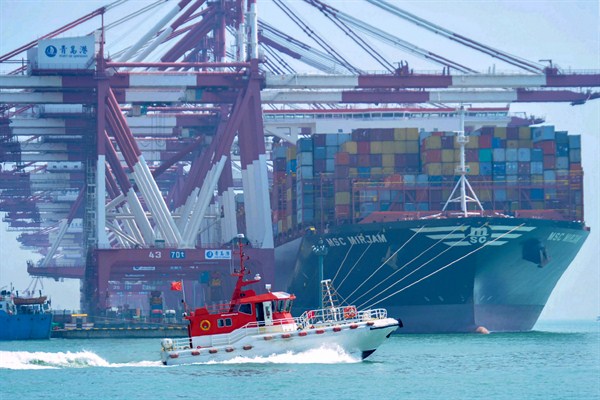If the U.S.-China trade war develops into a broader cold war, as some observers fear, it will be nothing like the actual Cold War. Between civil war in Russia after World War I, the Great Depression in the United States and then the cataclysm of World War II, America and the Soviet Union never had a chance to develop a significant economic relationship before things hardened into a stark East-West divide. When Washington adopted a containment strategy that blocked most trade with the Soviets, including technology transfers, it had relatively little impact on either economy.
The situation with China today is radically different. After normalizing diplomatic relations in the 1970s, Washington gradually lifted most restrictions on trade and technology transfers. By the time President Bill Clinton came to office in the 1990s, many American policymakers viewed economic engagement as a tool to promote political as well as economic liberalization in China. In 2000, the Clinton administration used this argument to convince Congress to extend what is known as “normal trade relations” treatment to China, paving the way for freer trade between the U.S. and China and for Beijing to join the World Trade Organization. The thinking was that rising incomes, along with increased exposure to economically open and democratic societies, would create pressures on the Chinese Communist Party to loosen its grip.
Since that time, China’s role in the global economy has exploded. It is by far the world’s largest exporter of merchandise and the second-largest importer of both goods and services. In recent years, it has also emerged as the largest exporter of intellectual property-related services among middle-income developing countries. According to data from the United Nations Conference on Trade and Development, China is among the top two or three countries as both a source of and host to foreign direct investment, depending on whether Hong Kong is included.

